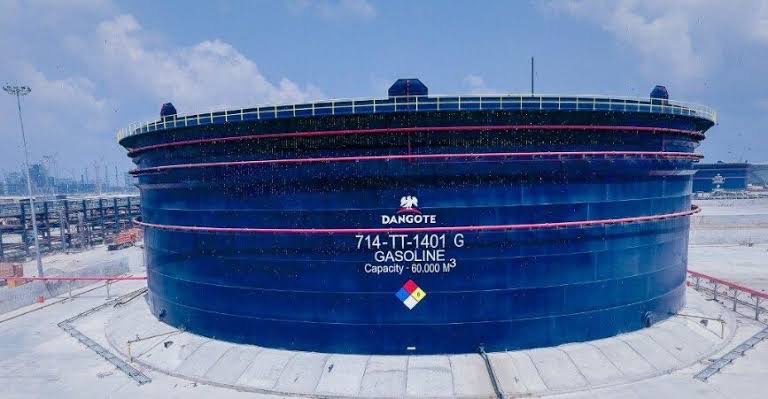KEY POINTS
- NOGASA may suspend petrol supply operations over Dangote Refinery’s decision to bypass traditional distributors.
- The new model threatens thousands of jobs as 4,000 CNG-powered tankers will deliver fuel directly to end users.
- A crucial general meeting on July 31 will determine NOGASA’s next steps and possible engagement with Dangote.
The Natural Oil and Gas Suppliers Association of Nigeria, NOGASA, has issued a stern warning that it may suspend operations across the country if Dangote Refinery proceeds with its plan to directly distribute petroleum products to end users, bypassing the traditional supply chain.
Benneth Korie, President of NOGASA, said in Abuja that the move threatens to destabilize the oil and gas industry and could result in massive job losses.
“This is a serious concern for us as it puts at risk the livelihoods of thousands who depend on the established distribution network,” Korie stated.
According to him, NOGASA has scheduled a critical general meeting on July 31, 2025, at Chida Hotels in Abuja. The gathering aims to decide whether to embark on a nationwide shutdown and develop a strategic response to Dangote’s supply model.
“We are holding a general meeting on the 31st to decide whether to down tools and to find a way to ensure that Dangote will supply the product to us rather than to the end users. We, in turn, will distribute to final consumers. These are chains of distribution,” Korie explained.
Industry players fear loss of relevance, job cuts as Dangote Refinery disrupts existing petroleum supply network
On June 15, 2025, Dangote Refinery announced that it would begin supplying Premium Motor Spirit (PMS) and diesel directly to large-scale users, such as telecom operators, aviation companies, manufacturing plants, and hotel chains, starting August 15. The company plans to deploy 4,000 Compressed Natural Gas (CNG)-powered tankers across Nigeria to execute this new strategy.
This direct-to-consumer model eliminates the roles of third-party suppliers and depot intermediaries—many of whom are NOGASA members. The association is alarmed at the possible economic implications of this new development.
“This is the new trend in the oil and gas industry, where Dangote is now supplying products directly to end users, especially MTN, companies, hotels, and all the rest of them. Members of NOGASA are suppliers of petroleum products,” said Korie.
He lamented that if the refinery sticks to this new route, it could render thousands of petroleum marketers, truck drivers, and other logistics personnel jobless, as their services will no longer be required.
“It will remove jobs from a lot of them and some of our staff will be redundant, some of our trucks will be redundant,” Korie warned.
He emphasized that the traditional supply chain is vital for sustaining employment in the industry and maintaining operational balance. The association has expressed fears that this shift, if unaddressed, could send shockwaves through the Nigerian economy.
Korie stressed that NOGASA is not opposed to innovation or efficiency, but called for a collaborative approach that preserves existing roles in the sector.
“We are not against Dangote supplying products, but we want them to channel those supplies through us. That way, jobs are protected and the system remains healthy,” he added.
He said the upcoming meeting will not only determine whether members should halt petrol lifting activities, but will also aim at engaging Dangote in direct dialogue to advocate for inclusive distribution.
Industry analysts have said that while Dangote’s model could lead to lower fuel prices and better delivery timelines, its rollout must be carefully managed to avoid displacing thousands of supply chain workers and collapsing smaller businesses.
As tension mounts ahead of the July 31 meeting, the oil and gas sector is watching closely to see if consensus can be reached between NOGASA and Dangote Refinery—or if Nigeria will face another disruption in fuel distribution.



